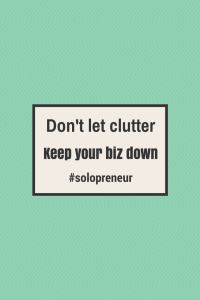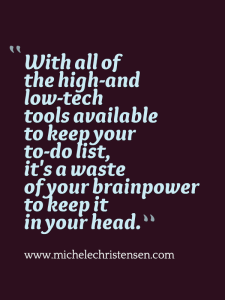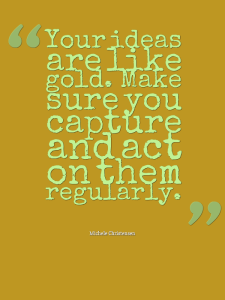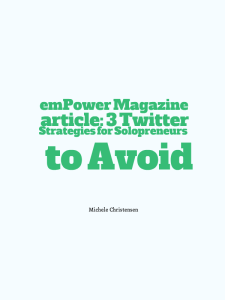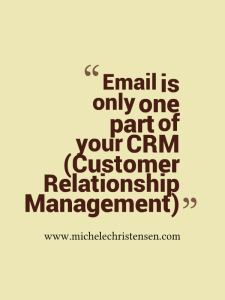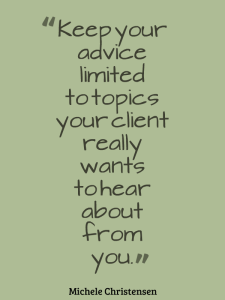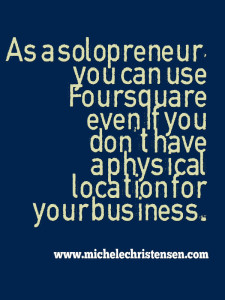 I admit, I’m late in jumping on the Foursquare bandwagon. As with any new undertaking, I have to have a definitive reason for getting involved with something and I have to know what I expect to get from it and have a way to measure that result. I’ve checked out Foursquare several times, but never felt like it was a good fit for my business until now. In this article, I’ll share why I decided to start using it, what I’m using it for and how I keep myself safe.
I admit, I’m late in jumping on the Foursquare bandwagon. As with any new undertaking, I have to have a definitive reason for getting involved with something and I have to know what I expect to get from it and have a way to measure that result. I’ve checked out Foursquare several times, but never felt like it was a good fit for my business until now. In this article, I’ll share why I decided to start using it, what I’m using it for and how I keep myself safe.

In case you don’t know, Foursquare is a social media site and smartphone app that uses your phone’s gps system to let you “check in” to physical locations. As a work-at-home solopreneur, I don’t actually have a physical location so it never seemed like something that would work for me. I was also concerned about announcing to the world where I am and that my house is empty.
The reason I finally decided to jump is to spice up my Twitter feed with some more interesting personal information. Several people I follow on Twitter have their check ins included in their Twitter feed and I found I really enjoyed it, especially when they included a picture. It’s important to share some information about yourself, your personality and life in your marketing so people have a sense of just who they are considering doing business with. As with any sharing of personal information, don’t overdo it.
So, the main reason I’m using Foursquare is to add some variety to my Twitter feed. I’m definitely accomplishing that, but there are a few added benefits I hadn’t considered. It’s actually a fun service to use. There’s elements of gaming in it such as the ability to earn badges, which often come as a surprise. I also find it tends to get me out of the house more because I don’t like to see a whole day with no check ins.
The big question is safety. When the practice of revealing your physical location became popular, there was a lot of stories about people being burglarized while they were out and of people being stalked at the places they go regularly. I protect myself from burglary by never checking in unless someone is home at my house. I also have two large, very loud dogs that show up all the time in my social media postings for any would-be burglar to see. If this isn’t an option for you, consider only checking in when you will be home shortly.
As far as discouraging stalkers, I only check in when I’m leaving a place. If someone tries to find me, I won’t be there anymore. I also never check in at any of my regular stops, i.e. places where there is a pattern to my visiting or places I go often. There’s no way to figure out where I go regularly by looking at Foursquare.
Do you see any way to use Foursquare in your solopreneur business? Tell me about it in the comments.

